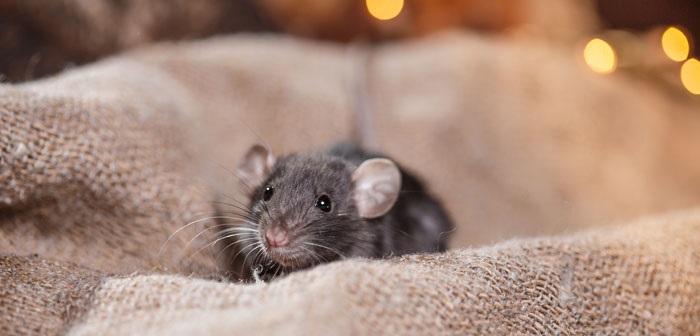Rats and Mice (Rodents)

With NSW currently experiencing high mice numbers, lets work together on ways to make sure they aren't attracted to your property by making the environment unfavourable to them.
Mice and rats are rodents that carry disease and are a public health concern in the community. They breed rapidly in the right environment and are well adapted to living in close association with humans, where they can quickly cause significant property damage.
To tackle Australia's persistent mouse problem the NSW Government is rolling out a mice control support program to help farmers, small businesses and households manage the high levels of mouse activity across the state.
How to keep mice out of your house
Did you know?
- Mice can live for up to three years if there is a reliable food and water source
- Mice are most active during the night time
- Rats and mice can be found living in homes, sheds, garages, gardens, in walls and cavities of buildings
- Female mice can be fertile from as young as four weeks meaning their population can rapidly expand
- During the winter season, cold weather is predicted to stop the spread of mice
- Under the Public Health Act 2010 residents are responsible for the control of rats and mice on your properties due to the risk of damage to houses, generation of odour and potential risk to human health.
Everyone in Campbelltown City can play an active part in helping to stop rodents entering your home and breeding on your property by:
Reducing food sources
- Remove all food sources by covering over bins, close cupboards and store food in sealed containers with lids
- Don't leave pet food out overnight - clean your pet and poultry food dishes and make sure pet food is stored in tightly sealed packets and containers
- Clean up seed, waste and food from bird cages, enclosures and chicken coops - only allow enough food for each day
- Don't feed wildlife
- Remove ripened or fallen fruit and seeds from trees, palms and the ground - and remove fruit and nuts from trees or vines at the end of the season
- Rubbish bins and compost containers should be well-maintained and free from holes - keep compost free of meat products and place some wire mesh at the base of the bin
- Keep waste storage areas clean and any food spills cleaned up immediately.
Removing potential breeding sites
- Block potential entry points to your buildings and immediately repair any breakages - such as holes in walls and roof cavities
- Remove or cover grates, plugs and pipes
- Keep your yards tidy - by keeping grass and vegetation cut short and store rubbish and food scraps in rat proof bins
- Clear your property and sheds of disused materials - such as timber or building materials
- Check retaining and rock walls are not harbouring mice
- Stack timber and boxes at least 30cm above the ground and 30cm away from walls - so rats can't burrow under them
- Trim trees away from rooflines - to limit rodent access.
Getting rid of mice
How can I tell when my house is infested with mice?
Signs of a mice (and rat) infestation can include the presence of droppings, footprints in damp soil or dust, run paths that may have developed along fence lines and borrows in the ground. Indications of an infestation can include signs of gnawing. They can also be noisy at night.
It's important to get rid of rodents quickly, as mice and rats can be cause for concern as they can:
- cause damage through gnawing (wiring, wood, food packages)
- carry fleas and ticks that cause harm to pets or humans
- cause unpleasant odours
- contaminate food with their hair, droppings and urine which may then cause food poisoning and spoilage
- carry disease.
Controlling rodent activity:
Lay traps inside or near the house
Trapping can be an effective method of pest control:
- You can purchase lockable stations and humane traps from hardware stores, some supermarkets and commercial pest control suppliers
- Use a range of different lure types including peanut butter, apple, pumpkin seeds, meat or fish
- When using meat tie the lure on with a piece of wire, this will make it hard for a rodent to remove meat without setting off the trap
- Place your trap in sheltered locations where the rats and mice feel comfortable feeding and where they will not be encountered by non-target species such as birds, lizards and native mammals
- Make sure you follow the safety instructions on the packet and store your traps out of reach of children or pets.
Use mouse repellent
- Mouse repellent can be purchased online from pest management websites
- Can be plugged in to a power point
- They operate using a high-frequency sound to drive mice away from food sources and nesting grounds within homes
- Sonic or ultrasonic devices have been designed specifically for rodents.
Baits
We do not recommend the use of baits as it can cause significant harm and death to threatened native animals such as owls, eagles, snakes and lizards through secondary poisoning.
Baits are normally flavoured to makes them attractive to rodents, which also attracts other animals to them like dogs and cats - who may also die if they ingest baits.
Contact a licensed pest control company
Seek professional rat and mice control if trapping and repellent are unsuccessful, or you prefer not to use them. A professional pest management technician can inform you on the most appropriate course of preventative pest control.
Need more information?
For more information on management and control strategies for mice visit the Mouse Alert website, Local Land Services and Disposing of dead mice on the NSW Government website.